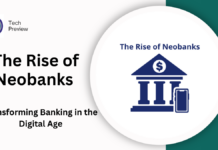Discover the pillars of the crypto world through this detailed documentary on Bitcoin’s key initiatives. This article explores the Key initiatives driving Bitcoin’s growth and Bitcoin’s impact on industries. Also make sure you learn about the technical indicators that can make a difference in your trading. For now, read WeInvests’ Deep Dive into Impulse MACD which will be a valuable addition to your trading knowledge.
Key Initiatives Driving Bitcoin’s Growth
One of the key initiatives is Bitcoin’s establishment as a store of value. Over time, Bitcoin has emerged as a digital equivalent of gold, offering individuals and institutions a hedge against inflation and economic uncertainties. The limited supply and scarcity of Bitcoin have further contributed to its value appreciation, attracting a growing number of investors seeking to preserve and grow their wealth.
In addition to being a store of value, Bitcoin has also made significant strides as a medium of exchange. Despite initial skepticism, more businesses and individuals are now accepting Bitcoin as a means of payment. The decentralized nature of Bitcoin and the use of blockchain technology have enabled secure and transparent transactions. However, challenges related to scalability have been addressed through developments such as the Lightning Network, which allows for faster and cheaper transactions, enhancing Bitcoin’s viability as a medium of exchange.
Furthermore, Bitcoin has played a crucial role in providing financial services to the unbanked population worldwide. In countries with limited access to traditional banking systems, Bitcoin has emerged as a viable alternative. It empowers individuals to store, send, and receive funds without the need for a traditional bank account. This has opened up new opportunities for financial inclusion and economic empowerment, particularly in developing economies.
These key initiatives have not only driven Bitcoin’s growth but also impacted various industries. In the realm of finance and investment, the integration of Bitcoin into traditional institutions has provided individuals and institutional investors with exposure to this emerging asset class. Bitcoin-focused investment products, such as exchange-traded funds (ETFs) and futures contracts, have further bolstered Bitcoin’s acceptance and mainstream recognition.
Bitcoin’s influence has also extended to the e-commerce and retail sectors. Businesses, both online and offline, have started accepting Bitcoin as a payment method, offering customers greater flexibility and convenience. While challenges remain, such as price volatility and regulatory considerations, the successful integration of Bitcoin in retail demonstrates its potential to revolutionize traditional payment systems.
Bitcoin’s Impact on Industries
In the field of finance and investment, Bitcoin has challenged conventional notions of asset classes. The integration of Bitcoin into traditional financial institutions has provided individuals and institutional investors with new opportunities for diversification. Bitcoin-focused investment products, such as cryptocurrency funds and futures contracts, have emerged, offering investors exposure to the potential growth and volatility of the crypto market. As a result, the financial landscape has expanded, accommodating the growing demand for digital assets.
Bitcoin’s impact on e-commerce and retail industries has been significant as well. More businesses, both online and brick-and-mortar, are accepting Bitcoin as a payment method. This adoption has introduced greater flexibility and convenience for customers, enabling seamless transactions across borders and reducing the reliance on traditional payment processors. By embracing Bitcoin, businesses have tapped into a global customer base of crypto enthusiasts and positioned themselves as forward-thinking pioneers in the evolving digital economy.
Bitcoin’s potential in developing economies cannot be overlooked. In regions with limited access to traditional banking services, Bitcoin has emerged as a game-changer. It offers a decentralized financial infrastructure that bypasses the need for a centralized banking system. Bitcoin’s borderless nature enables cross-border transactions and facilitates remittances, empowering individuals and businesses to participate in the global economy. By leveraging Bitcoin’s accessibility and cost-effectiveness, developing economies have the opportunity to leapfrog traditional financial systems and accelerate economic growth.
The impact of Bitcoin goes beyond specific industries; it has fostered innovation and entrepreneurship. The rise of blockchain technology, the underlying technology behind Bitcoin, has inspired countless startups and projects across various sectors. Industries such as supply chain management, healthcare, and voting systems have explored the potential of blockchain to enhance transparency, security, and efficiency.
Moreover, Bitcoin has influenced the narrative around the future of money and the concept of decentralization. It has sparked discussions about the role of traditional financial institutions and the need for democratized financial systems. Bitcoin’s decentralized network and open-source nature have challenged centralized authorities and traditional intermediaries, prompting debates about the power dynamics within the global economy.
Conclusion
Bitcoin’s influence extends beyond the realm of finance. Its adoption as a store of value, medium of exchange, and empowerment of the unbanked showcases its transformative power. As Bitcoin continues to shape industries and economies worldwide, its impact as a pioneer in the crypto world remains unparalleled.









